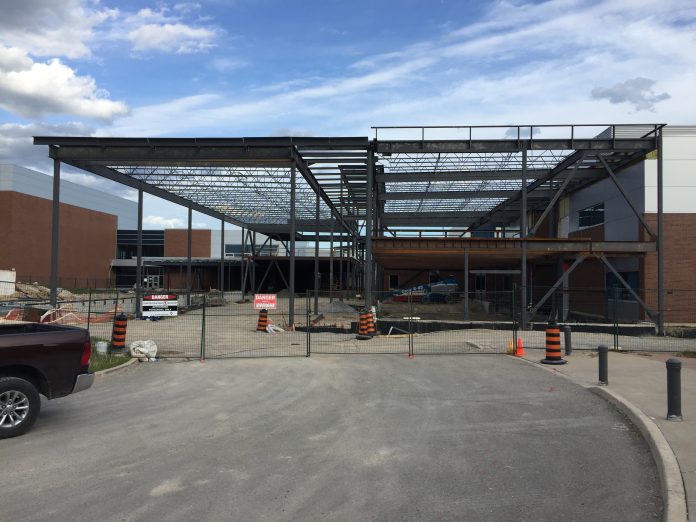Future Buildings has achieved success through more than three decades in business with a forward-looking perspective about prefabricated steel buildings; expanding applications and keeping pace with evolving building codes and market requirements.
Marcel Aitoro started the business in 1978, delivering steel Quonset huts to farmers, loggers, fishermen and First Nations bands. The company opened its Brampton manufacturing plant a decade later in 1988, and so celebrated this year with its 30th anniversary.
Future Buildings continues to deliver its buildings to remote and challenging locations internationally, as it expands the market for steel buildings throughout Canada and for a diversity of purposes, including the aptly-named Carport.
“Without question, Future Buildings’ greatest achievement is innovation,” said marketing manager Candice Sheldon.
These innovations include building wider and much higher-capacity buildings, including structures with clear spans of up to 150 feet, making them suitable for agricultural machinery, industrial equipment and long-haul trucks. In other instances, the challenge is that buildings must be compact and designed for shipment to remote environments.
“We are proud to have engineered and supplied Midwestern State University the structures they required to complete their Dalquest Desert Research Station (DDRS) to study natural sciences,” Sheldon said. “Designed to be sustainable with minimal environmental impact, the station is off-grid, right in the middle of 3,000 acres of pristine Texas desert.”
The project included a 3,500 sq. ft. research laboratory and a 660 sq. ft. utility building. “These Future Buildings will play a part in decades of scientific research,” she said.
“We also have introduced a product called a Container Cover – these are extremely handy for commercial applications as they are affixed to containers and provide shelter and protection. We have shipped these all over the world as sea cans are extremely popular for storage.”
Future Buildings ensures its structures meet building code requirements. Sheldon says Future Buildings has adapted its products with enhancements such as a redesigned eave radius and an increased corrugation depth, “both of which added overall strength to the building.”

“Future Buildings works very hard at maintaining 100 per cent conformance with all codes and certifications with both our products and factory,” she said. “In fact, the increased volume in buildings we need to manufacture today demanded we move to a larger facility this past year, which is state-of-the-art equipped with the highest-grade machinery and expert engineering staff, which together will continue to propel us into the next 30 years.”
Sheldon says Future Buildings seeks to simplify and expedite the construction process. “Our efforts are always focused on improving the quality of our structures with one very significant example being our weld-free manufacturing process,” she said.
“Our manufacturing and engineering teams never stop looking at what the marketplace is demanding and going back to the drawing board to respond to those needs. We are proud to lead the way by always listening to customers and continuing to develop the best structures at the best price that will provide the best solution.”
The company employs about 140 between a Brampton manufacturing plant, a Markham sales and customer service office, as well as a second sales office in Grand Rapids, Michigan.
For more information, see www.futurebuildings.com or call 1-800-668-5111.
Sponsored feature

